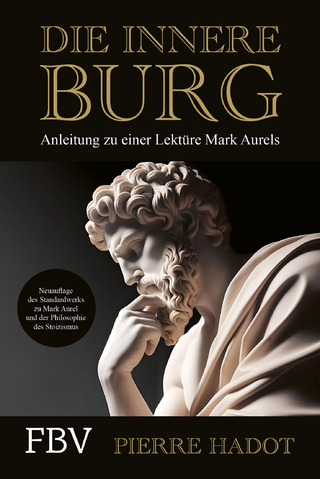
Plato and the Mythic Tradition in Political Thought
Seiten
2020
Harvard University Press (Verlag)
978-0-674-98464-6 (ISBN)
Harvard University Press (Verlag)
978-0-674-98464-6 (ISBN)
Plato’s penchant for mythmaking sits uneasily beside his reputation as the inventor of rationalist philosophy. Hegel’s solution was to ignore the myths. Popper thought them disqualifying. Tae-Yeoun Keum responds by carving out a place for myth in the context of rationalism and shows how Plato’s tales inspired history’s great political thinkers.
Winner of the Gustave O. Arlt Award in the Humanities
Winner of the Istvan Hont Book Prize
An ambitious reinterpretation and defense of Plato’s basic enterprise and influence, arguing that the power of his myths was central to the founding of philosophical rationalism.
Plato’s use of myths—the Myth of Metals, the Myth of Er—sits uneasily with his canonical reputation as the inventor of rational philosophy. Since the Enlightenment, interpreters like Hegel have sought to resolve this tension by treating Plato’s myths as mere regrettable embellishments, irrelevant to his main enterprise. Others, such as Karl Popper, have railed against the deceptive power of myth, concluding that a tradition built on Platonic foundations can be neither rational nor desirable.
Tae-Yeoun Keum challenges the premise underlying both of these positions. She argues that myth is neither irrelevant nor inimical to the ideal of rational progress. She tracks the influence of Plato’s dialogues through the early modern period and on to the twentieth century, showing how pivotal figures in the history of political thought—More, Bacon, Leibniz, the German Idealists, Cassirer, and others—have been inspired by Plato’s mythmaking. She finds that Plato’s followers perennially raised the possibility that there is a vital role for myth in rational political thinking.
Winner of the Gustave O. Arlt Award in the Humanities
Winner of the Istvan Hont Book Prize
An ambitious reinterpretation and defense of Plato’s basic enterprise and influence, arguing that the power of his myths was central to the founding of philosophical rationalism.
Plato’s use of myths—the Myth of Metals, the Myth of Er—sits uneasily with his canonical reputation as the inventor of rational philosophy. Since the Enlightenment, interpreters like Hegel have sought to resolve this tension by treating Plato’s myths as mere regrettable embellishments, irrelevant to his main enterprise. Others, such as Karl Popper, have railed against the deceptive power of myth, concluding that a tradition built on Platonic foundations can be neither rational nor desirable.
Tae-Yeoun Keum challenges the premise underlying both of these positions. She argues that myth is neither irrelevant nor inimical to the ideal of rational progress. She tracks the influence of Plato’s dialogues through the early modern period and on to the twentieth century, showing how pivotal figures in the history of political thought—More, Bacon, Leibniz, the German Idealists, Cassirer, and others—have been inspired by Plato’s mythmaking. She finds that Plato’s followers perennially raised the possibility that there is a vital role for myth in rational political thinking.
Tae-Yeoun Keum is Assistant Professor of Political Science at the University of California, Santa Barbara, and was previously the Christopher Tower Junior Research Fellow at Christ Church, University of Oxford.
| Erscheinungsdatum | 31.12.2019 |
|---|---|
| Zusatzinfo | 3 tables |
| Verlagsort | Cambridge, Mass |
| Sprache | englisch |
| Maße | 156 x 235 mm |
| Themenwelt | Geisteswissenschaften ► Philosophie ► Philosophie Altertum / Antike |
| Geisteswissenschaften ► Sprach- / Literaturwissenschaft ► Anglistik / Amerikanistik | |
| Geisteswissenschaften ► Sprach- / Literaturwissenschaft ► Literaturwissenschaft | |
| Sozialwissenschaften ► Politik / Verwaltung ► Politische Theorie | |
| ISBN-10 | 0-674-98464-1 / 0674984641 |
| ISBN-13 | 978-0-674-98464-6 / 9780674984646 |
| Zustand | Neuware |
| Informationen gemäß Produktsicherheitsverordnung (GPSR) | |
| Haben Sie eine Frage zum Produkt? |
Mehr entdecken
aus dem Bereich
aus dem Bereich
Anleitung zu einer Lektüre Mark Aurels
Buch | Hardcover (2025)
FinanzBuch Verlag
CHF 27,95
mit Sokrates, Seneca, Platon & Co. im Gespräch
Buch | Hardcover (2023)
FinanzBuch Verlag
CHF 25,20


